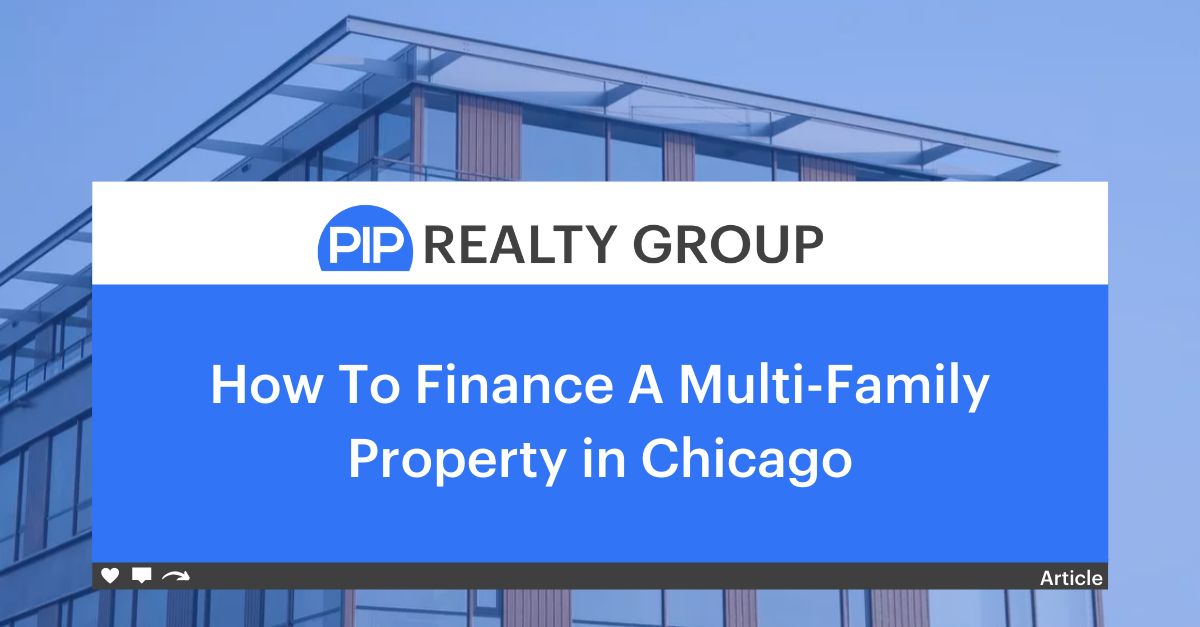
A multi-family property can be a good real estate investment and is often the next step for investors who have previously purchased single-family properties. A multi-family property can generate more income and build net worth faster. Before taking the multi-family plunge, investors do need to determine whether they’re really prepared for the greater responsibility and liability and whether they are capable of keeping the needed cash reserves on hand. But if you’ve made up your mind, here’s how to finance a multi-family property in Chicago.
Conventional Mortgage
Traditional banks and other lenders consider a conventional mortgage, as a source of funding for purchasing a multi-family property, a permanent “conforming” loan. In most cases, these mortgages, with terms of 15 to 30 years, can be used to finance the purchase of properties with two four units, but not for properties with five or more units. When these kinds of mortgages are used to finance a multi-family property in Chicago, they are called “conforming’ because they aren’t government-backed and they generally stick to Fannie Mae’s required qualifications and loan limits.
Investors needing a long-term loan or those looking for a property that has already been rehabbed should consider a conventional mortgage. Another attraction of a conventional mortgage to finance a multi-family property is that if you live in the property (making it owner-occupied), you can usually get better terms – often a very small down payment and lower interest rates.
Government-Subsidized Financing
Government-subsidized loans include those sponsored by Fannie Mae, Freddie Mac, and the Federal Housing Administration (FHA), with several options for purchasing both two-to-four unit property and five+-unit properties. As a way to finance a multi-family property in Chicago, government-subsidized financing is often a good option for investors who want to purchase properties with five or more units. This is where an FHA multi-family loan comes into play. Owing to the government backing, government-subsidized financing can also work well for investors with little to put down.
Portfolio Loan
For some real estate investors, a portfolio is the best option to finance a multi-family property in Chicago. Unlike a conventional mortgage, a portfolio loan is a “non-conforming” loan because it doesn’t have to meet Fannie Mae requirements. These loans, with terms between three and 30 years, are permanent mortgages and are good for investors seeking some flexibility in their multi-family loan requirements. Portfolio loans are also a good fit for investors who need to finance several properties simultaneously (four to 10 properties usually).
Short-Term Financing
Short-term loans to finance a multi-family property in Chicago is financing that is nonpermanent and usually has terms ranging from six months to three years. This kind of financing comprises both hard-money loans and bridge loans that demand interest-only payments. These loans are a good option for investors who want to renovate or up the occupancy rate of the property as a way to meet the more stringent requirements of permanent multi-family financing. In addition, some investors use nonpermanent short-term financing as a way to go ahead and purchase a property until they can meet the personal qualifications demanded by other financing options.
So the main ways to finance a multi-family property in Chicago are a conventional mortgage, government-subsidized financing, portfolio loans, and short-term financing. The best option for your particular investment situation depends on several variables, such as the condition of the property, available down payment, and income-to-debt ratio. Not rushing in and performing adequate due diligence are absolutely essential ingredients in the real estate investing recipe. That’s why it’s always a good idea to call on the expertise of qualified real estate professionals.
